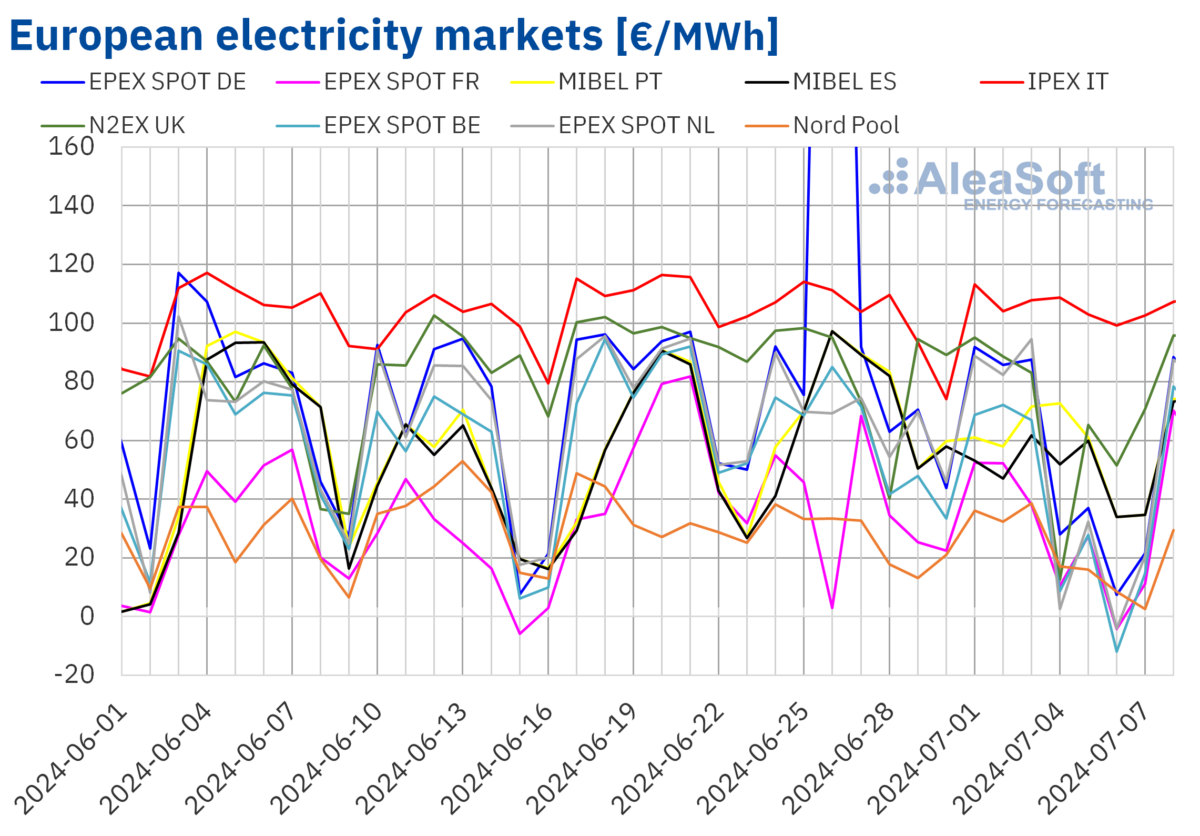Electricity prices fell in all major European markets except the Italian market during the first week of July, according to analysis from AleaSoft Energy Forecasting.
The German market recorded the largest percentage drop compared to the preceding week, at 61%. However, average price decreases were also recorded in the Belgian, British, Dutch, French, Nordic, Portuguese and Spanish markets.
Weekly averages were below €60 ($64.90)/MWh in all markets apart from the British (€66.68/MWh) and Italian market (€105.50/MWh) markets. The Nordic market recorded the lowest average, at €21.59/MWh.
All the analyzed markets recorded negative electricity prices on at least two days last week, except the Italian market which did not record any. The Belgian, Dutch and German markets all registered negative electricity prices on four separate days (July 4, July 5, July 6 and July 7), with the Dutch reaching the lowest price, at -€149.00/MWh on July 4.
AleaSoft said a decline in weekly average gas prices and an increase in wind energy production, alongside a decrease in electricity demand in some markets, all had a downward influence on electricity prices last week. During the second week of July, it forecasts prices to increase across most markets.
Solar energy production increased in Spain, Portugal and Italy last week, but fell in Germany and France. Spain broke its all time record for daily PV production on July 3, registering 202 GWh. Meanwhile, Portugal, France and Italy registered their highest daily figures ever for a day in July, at 21 GWh, 115 GWh and 128 GWh respectively.
For the second week of July, AleaSoft is predicting an increase in solar production in Germany and Italy, but a decrease in Spain.
This content is protected by copyright and may not be reused. If you want to cooperate with us and would like to reuse some of our content, please contact: editors@pv-magazine.com.




By submitting this form you agree to pv magazine using your data for the purposes of publishing your comment.
Your personal data will only be disclosed or otherwise transmitted to third parties for the purposes of spam filtering or if this is necessary for technical maintenance of the website. Any other transfer to third parties will not take place unless this is justified on the basis of applicable data protection regulations or if pv magazine is legally obliged to do so.
You may revoke this consent at any time with effect for the future, in which case your personal data will be deleted immediately. Otherwise, your data will be deleted if pv magazine has processed your request or the purpose of data storage is fulfilled.
Further information on data privacy can be found in our Data Protection Policy.